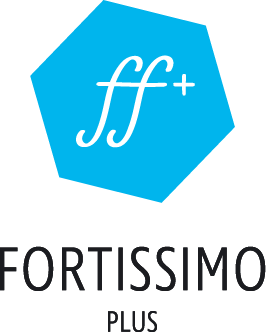Genport Secures EU Grant to Optimize PEMFCs with HPC & AI
Genport, in collaboration with the Department of Energy at Politecnico di Milano, has been awarded funding from the First FFplus EU Open Call to enhance Proton Exchange Membrane Fuel Cell (PEMFC) performance using High-Performance Computing (HPC) and Machine Learning (ML).
The project leverages POLIMI’s high-fidelity 3D PEMFC models, developed in OpenFoam CFD, to train ML surrogate models for real-time Model Predictive Control (MPC). This innovative approach aims to improve PEMFC efficiency by up to 15% and extend durability by up to 50%, driving advancements in clean energy for electric vehicles, stationary power, and portable applications.
Genport's project ranked first!
Here is a description of the open call.
The First FFplus Open Call for Business Experiments was Successful: 19 Sub-projects were Selected for Funding
About
The first FFplus Open Call for Business Experiments (Type 1) addresses the uptake of HPC by SMEs in order to solve specific business challenges of SMEs that have had no prior use of, or experience with, HPC services.
The indicative total funding budget for all sub-projects funded under this call was € 4M.
Statistics
The FFplus project is pleased to announce the results of its first open call for Business Experiments proposals, referred to as Open Call-1, Type-1. The call opened on June 21, 2024 and closed on September, 4. A total of 126 proposals were received and all eligible proposals were evaluated in a two-stage, consensus-based review involving external expert evaluators. Each proposal was independently evaluated by two experts, and a consensus review result was then written with the help of a moderator.
As a result of this process, 19 sub-projects were selected for funding based on their impact, the soundness of the technical concept, the quality of the proposing consortium and the deployment of requested resources.
Country Statistics
In total, 126 proposals were received, including 220 organisations from 30 European countries. The 19 funded sub-projects involve a total of 43 organisations including 34 SMEs (79% of all organisations) and 9 other organisations from 15 countries, with Italy and Greece leading the field in the number of selected proposals containing participants from their countries.
Since one of the FFplus Open Call objectives was to broaden the geographical base of SMEs exploiting HPC technologies and services, awarding the first 19 sub-projects to consortia involving 15 European countries demonstrates a clear success. The sub-projects consist of participants from the following countries: Belgium, Czechia, Denmark, Estonia, France, Greece, Germany, Italy, Luxembourg, Montenegro, the Netherlands, Norway, Serbia, Spain and Slovenia.
The total Open Call-1 budget for Type 1 was €4M, while each FFplus Type-1 sub-project was limited to a total funding of € 200,000 aggregated over all its partners. The 19 selected experiments were awarded a total funding budget of €3.7 million.
Small and Medium Enterprise Participation
Of the 43 organisations participating in the selected experiments, 34 (or 79%) are Small and Medium-Sized Enterprises (SMEs). This is significant since the main objective of the FFplus project is to demonstrate the business value achievable by the use of HPC resources or services for SMEs.
End-User Domains
Each of the FFplus Open Call-1 Type-1 proposals targets a specific economic end-user sector, aiming to accelerate innovation and create business value within that domain. Among all received proposals, the Energy and Manufacturing sectors account for 19 (15%) and 14 (12%) proposals, respectively. These are followed by Health with 13 proposals and Agriculture & Food with 12 proposals.
Regarding the funded sub-projects, the Energy and Manufacturing sectors account for 6 and 5 sub-projects, respectively. Maritime and Agriculture & Food follow with 2 funded sub-projects each. The graphic below illustrates the distribution of user sectors for the funded sub-projects.The manufacturing domain contains several industrial activities, from maintenance prediction for ships to the development of a pre-operative assistant for graft surgeries.
Technologies
The word cloud shows the used technologies for the selected business experiments: there is a strong focus on AI technologies: generative AI, neural networks, transformers and deep learning play a role in many of the selected sub-projects. Additionally, a lot of other topics from the CAE (Computer Aided Engineering) and Simulation domains (e.g. optimization, digital twins, surrogate models or Multiphysics) feature AI prominently.
Business Experiments started on February, 1st and will be running for 15 months. When the experiment is successfully concluded, it results in a success story, inspiring the Industry community.





